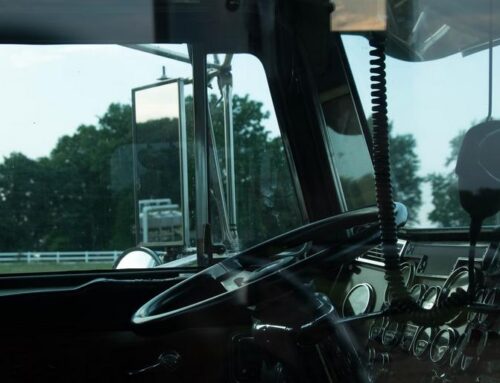The topic of firearms ownership, especially handguns, can be a thorny issue to address in today’s polarized political climate. No matter what side of the aisle you fall on, most if not all Hoosiers agree that firearm owners have a duty to exercise reasonable and ordinary care in the storage and safekeeping of their guns. That being said, the Indiana Court of Appeals, with some help from the 2004 Indiana state legislative session, may have just created even more tension on the issue by granting a motion for judgment on the pleadings in the case of a mother seeking damages for the death of her son by way of a careless handgun owner.
On July 22, 2016, Christopher Lee left his loaded 9mm Glock handgun on the seat of his unlocked truck, visible through the windows, in a public area, and walked away. Soon after a minor walking along the sidewalk saw Lee’s truck and the handgun inside, took the handgun from the unlocked truck, and went back to his home. Later that day the minor was showing the handgun to Matthew Kendall when the gun accidently discharged, and Kendall was killed. Kendall’s mother, Shelley Nicholson, then filed a complaint against the handgun owner, Christopher Lee, alleging that the storage of the gun in open view inside an unlocked and unattended vehicle was negligent and the proximate cause of her son’s death. In his answer, Lee admitted to owning the handgun and storing it in an unlocked and unattended vehicle that was parked in a public place.
In July of 2018 Lee filed a motion for judgment on the pleadings and argued that regardless of how the handgun was stored if the gun was stolen, he is statutorily immune from liability for any resulting harm, including the death of Shelley Nicholson’s son. The trial court granted the motion on July 20, 2018, before Nicholson had a chance to respond to it. After her motion for reconsideration was denied Nicholson brought an appeal before the Court of Appeals of Indiana.
In order to understand the holding of the Court of Appeals in Nicholson v. Lee, 120 N.E.3d 192 (Ind. App. 2019), one must look at the Court’s obligation to apply the law as enumerated by the Indiana legislature. Specifically, the case hinges on the interpretation of Indiana Code Section 34-30-20-1, which states:
A person is immune from civil liability based on an act or omission related to the use of a firearm or ammunition for a firearm by another person if the other person directly or indirectly obtained the firearm or ammunition for a firearm through the commission of the following:
- Burglary (IC 35-43-2-1)
- Robbery (IC 35-42-5-1)
- Theft (IC 35-43-4-2)
- Receiving Stolen Property (IC 35-43-4-2)
- Criminal Conversion (IC35-43-4-3)
In the case at hand the Court concluded that the minor who obtained the gun from Lee’s truck did so without his permission, thus committing one of the above offenses. Nicholson on appeal argued that Lee was not liable based on the minor who stole the handgun’s actions, but rather that Lee’s own negligence in leaving a loaded handgun in his unlocked truck at a public place negates his duty as a gun owner and therefore the above statute would not apply. The problem faced by the Court of Appeals in this case is that despite Lee’s gross indifference to keeping his loaded handgun in safe place, the language of the statute, along with the timing of when it was passed[1], makes it clear that Lee, despite his negligence, cannot be held accountable for Matthew Kendall’s death in this situation as the gun was stolen from his truck. The Court of Appeals of Indiana ultimately found that despite the fact that the manner in which Lee stored his handgun clearly lead to Kendall’s death, the statute as written immunizes Lee from liability both for the acts of the minor who stole the handgun and for his own failure to properly store the gun.
Nicholson attempted to argue that another statute applies, that of IC 35-47-2-7, which states that “a person may not sell, give, or in any other manner transfer the ownership or possession of a handgun or assault weapon to any person under eighteen (18) years of age.” This statute invokes strict liability— meaning the transfer of possession to a minor does not have to be done intentionally or knowingly. Despite these arguments the Court harmonized the two statutes by saying that clearly the handgun in this case was taken during the commission of a criminal act and therefore Lee, under the plain language of the statute being applied, must be immunized from liability.
This is clearly a tough issue and it may not be over until the Indiana Supreme Court weighs in. If you or someone you know has been injured or worse by the negligent storage or use of a firearm, the knowledgeable lawyers at the Law Offices of William W. Hurst, LLC, are more than happy to discuss your situation and make sure that you are advised of your rights. Feel free to call us toll free at 1-317-636-0808 or visit us online at https://hurstlimontes.com/contact-us/.
[1] The Court acknowledges that the legislation was passed at the session immediately following the Indiana Supreme Court’s decision in Estate of Heck, 752 N.E.2d 192 (Ind. App. 2001), wherein the court allowed a negligence action to proceed to trial against a gun owner involved in a set of facts similar to those at issue in Nicholson. The court found that the legislature clearly passed IC 34-30-20-1 to immunize gun owners in situations like this. Whether you agree with the statute or not, the Court of Appeals had no choice but to apply the law as written.




